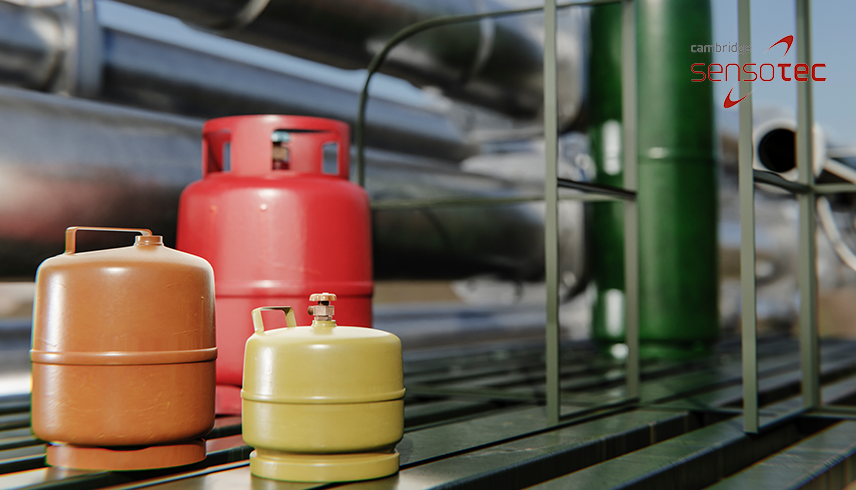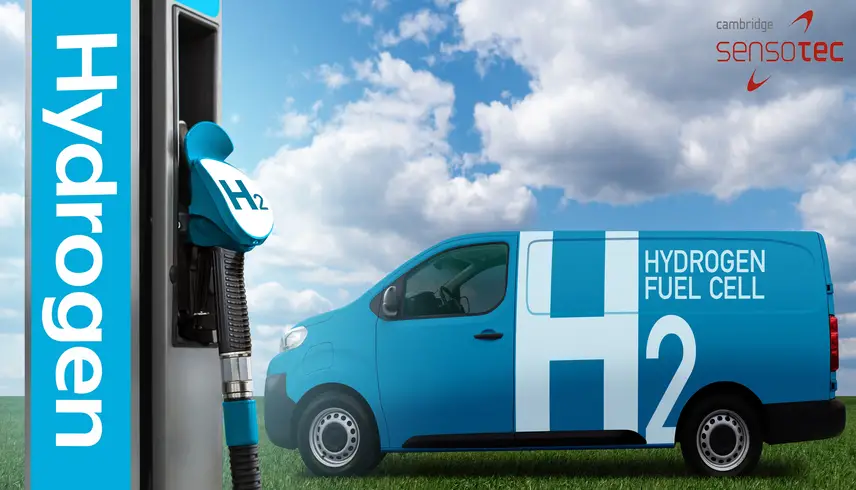

Hydrogen Gas Analysis for Fuel Cells: How Gas Analyzers Ensure Efficiency
In the ever-evolving landscape of energy production, hydrogen fuel cells have emerged as a beacon of promise. These clean and efficient power generators hold the potential to revolutionise our energy infrastructure, ushering in a future where sustainability and performance go hand in hand. However, achieving optimal efficiency in hydrogen fuel cells requires precise control and monitoring of the hydrogen gas used, and this is where gas analyzers come into play.
Why Hydrogen Fuel Cells?
Hydrogen fuel cells have captured the imagination of researchers, industries, and environmentalists alike due to their remarkable advantages. Unlike conventional combustion engines, fuel cells produce electricity through an electrochemical process that combines hydrogen and oxygen, emitting only water vapour as a byproduct. This means zero greenhouse gas emissions and the promise of a greener, cleaner energy source.
1. Zero Emissions:
One of the most significant advantages of hydrogen fuel cells is their environmental friendliness. Unlike fossil fuels, which release harmful pollutants and greenhouse gases into the atmosphere, hydrogen fuel cells produce electricity with zero emissions. The only byproduct of the hydrogen and oxygen reaction in fuel cells is pure water vapour. This makes hydrogen fuel cells a key player in the fight against climate change and air pollution.
2. High Efficiency:
Hydrogen fuel cells are renowned for their high energy efficiency. They convert a higher percentage of the energy contained in the hydrogen fuel into electricity compared to traditional internal combustion engines. This efficiency means that less fuel is needed to produce the same amount of power, making hydrogen fuel cells a cost-effective and sustainable choice.
3. Versatile Applications:
Hydrogen fuel cells find applications across a wide range of industries. They can power everything from vehicles and buses to stationary power generators and backup power systems. Their versatility makes them a valuable solution for both mobile and stationary power needs.
4. Fast Refuelling:
Compared to electric batteries, hydrogen fuel cells offer the advantage of fast refuelling. While electric vehicles may require hours to recharge, hydrogen fuel cell vehicles can be refuelled in a matter of minutes, similar to conventional gasoline or diesel vehicles. This makes them a practical choice for applications where downtime is not an option.
5. Long Range:
Hydrogen fuel cell vehicles also offer impressive driving ranges. They can travel longer distances on a single tank of hydrogen compared to many battery-powered electric vehicles. This extended range is particularly important for applications such as long-haul transportation.
6. Energy Storage:
Hydrogen can serve as an excellent means of energy storage. Excess electricity generated from renewable sources like wind or solar can be used to produce hydrogen through a process called electrolysis. This hydrogen can then be stored and used later to generate electricity when needed, helping to balance the grid and support renewable energy integration.
7. Reducing Dependency on Fossil Fuels:
The adoption of hydrogen fuel cells represents a significant step toward reducing our dependency on fossil fuels. As hydrogen can be produced from a variety of sources, including water and renewable energy, it offers a pathway to a more sustainable and diversified energy future.
The Role of Hydrogen Gas Analysis: Ensuring Purity and Consistency
Efficiency is the name of the game when it comes to hydrogen fuel cells. To harness the full potential of this technology, it’s imperative to ensure that the hydrogen gas supplied to fuel cells meets the highest standards of purity and consistency. This is precisely where hydrogen gas analysis enters the picture.
Understanding Hydrogen Gas Analysis
Hydrogen gas analysis involves the measurement and monitoring of various parameters related to hydrogen gas, such as its purity, moisture content, and impurity levels. Gas analyzers are the precision instruments designed for this task. These devices provide real-time data on the quality of the hydrogen gas, allowing for immediate adjustments and corrections as needed.
Purity Assurance:
In the world of hydrogen fuel cells, precision is paramount. These advanced energy systems rely on the interaction of hydrogen gas and oxygen to produce electricity efficiently and cleanly. Any impurities or variations in the composition of the hydrogen gas can have a profound impact on performance, reliability, and safety.
Gas analyzers designed specifically for hydrogen gas analysis play a pivotal role in ensuring the purity of the hydrogen fuel. They are capable of detecting even the smallest traces of impurities that might be present in the hydrogen supply. These impurities could include moisture, hydrocarbons, or other gases, and they can adversely affect the operation of fuel cells.
Gas Analyzers: Discover the Future of Hydrogen Analysis
Explore how cutting-edge gas analyzers can enhance the efficiency and safety of hydrogen applications. Learn More.
Moisture Control:
Hydrogen fuel cells are highly sensitive to moisture. Even trace amounts of water vapour can degrade their performance and potentially damage critical components. Gas analyzers provide real-time monitoring and control of moisture levels in the hydrogen supply, helping to maintain optimal operating conditions.
Impurity Detection:
In addition to moisture, gas analyzers are equipped to detect and quantify impurities such as oxygen, carbon monoxide, and other gases. Identifying these impurities is essential because they can catalyse unwanted reactions within the fuel cell, reducing efficiency and potentially leading to equipment failure.
Real-time Monitoring:
Perhaps one of the most critical aspects of hydrogen gas analysis is real-time monitoring. Gas analyzers continuously assess the composition of the hydrogen gas as it is fed into the fuel cell. This real-time data allows operators to make immediate adjustments if any deviations or anomalies are detected. It ensures that the hydrogen gas remains within the precise parameters required for optimal fuel cell performance.
Safety Assurance:
Beyond performance optimisation, gas analyzers also contribute to safety assurance. They can detect dangerous conditions such as the presence of flammable gases or abnormal chemical reactions, triggering alarms or shutdown procedures to prevent accidents.
Gas Analyzers: Guardians of Efficiency
Gas analyzers play a pivotal role in maintaining the efficiency of hydrogen fuel cells. Here’s how:
- Purity Assurance: Gas analyzers ensure that the hydrogen gas supplied to fuel cells is of the highest purity, minimising the risk of contamination that can degrade performance.
- Moisture Control: Even trace amounts of moisture can impact fuel cell efficiency. Gas analyzers monitor and help control moisture levels, preventing potential damage.
- Impurity Detection: They detect impurities in the hydrogen supply, allowing for quick remediation to avoid damage to fuel cells.
- Real-time Monitoring: Gas analyzers provide real-time data, enabling operators to make immediate adjustments for optimal fuel cell performance.
Cambridge Sensotec’s Gas Analyzers: Leading the Way
At the forefront of hydrogen gas analysis technology is Cambridge Sensotec, a trusted name in the field. Our gas analyzers, including the cutting-edge Rapidox series, are renowned for their precision and reliability.
Explore Cambridge Sensotec’s Gas Analyzers
Discover how Cambridge Sensotec’s advanced gas analyzers can elevate the efficiency and safety of your hydrogen applications. Explore our Gas Analyzers today.
Conclusion
Hydrogen fuel cells offer a promising path towards cleaner and more sustainable energy solutions. However, realising their full potential hinges on the quality of the hydrogen gas supplied to these cells. Hydrogen gas analysis, facilitated by advanced gas analyzers, ensures the purity, consistency, and safety of the hydrogen fuel. It’s a crucial component of the efficient and reliable operation of hydrogen fuel cells, making it possible to harness the immense benefits they offer in the transition to a greener energy future.


